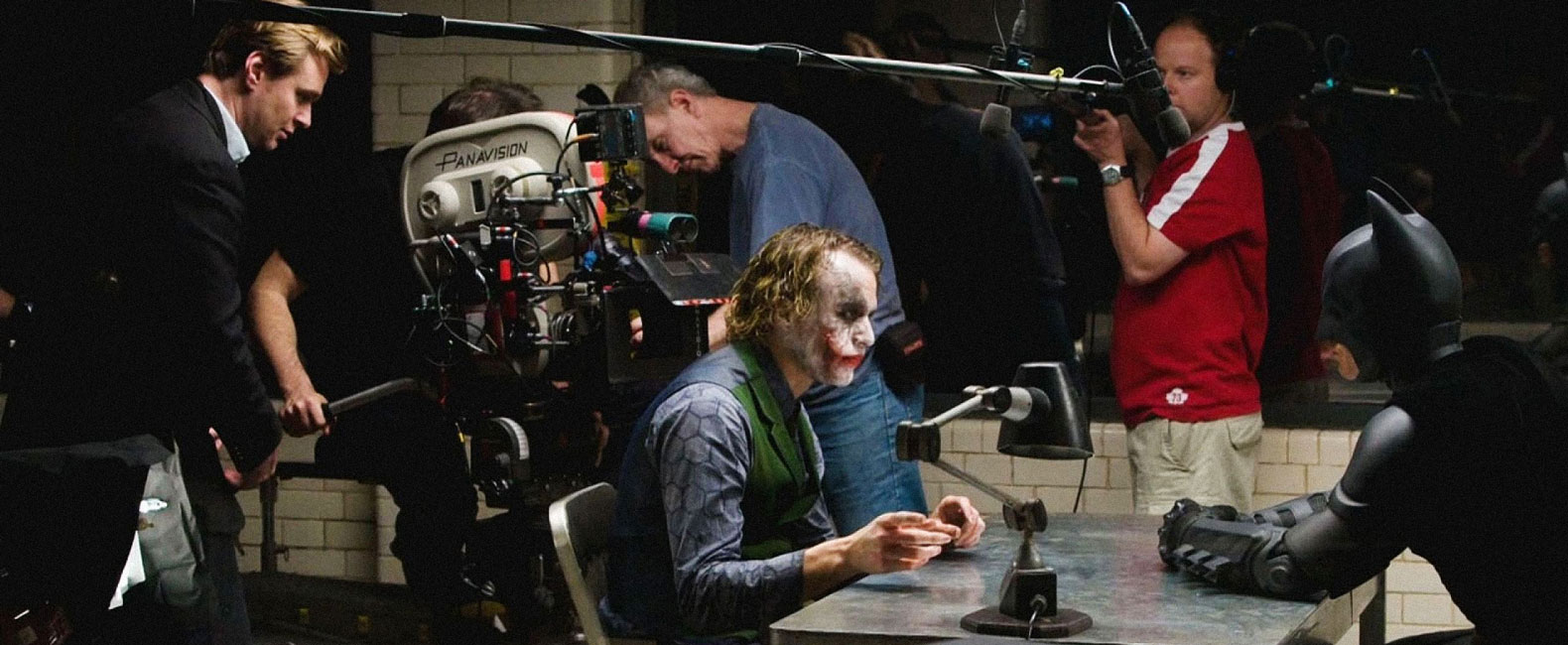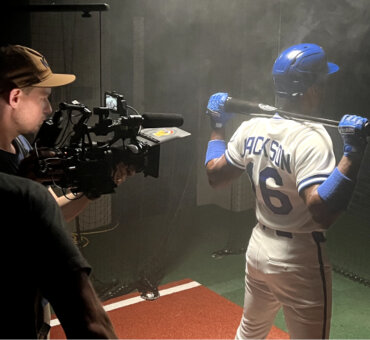With Oppenheimer releasing July 21, anticipation is high to see what Christopher Nolan has in store for us next. With hit blockbusters ranging from The Dark Knight (2008) and Inception (2010) to Interstellar (2014) and Dunkirk (2017), there can be no doubt that Nolan is one of the great film directors of our time. Accompanying these epic cinematic masterpieces are some equally iconic soundtracks, which are often integral to storytelling and can take films from good to great.
In an interview for the book The Nolan Variations, Nolan muses, “People have asked if I would ever make a musical and I’m like, ‘they’re all musicals.’” This is a director that clearly values and appreciates the importance of music in his work. Let’s take a closer look at how he does it.
The importance of Hans Zimmer
When studying the success of Nolan, it’s clear the director has a lot of tricks up his sleeve, most notably his collaboration with Hans Zimmer.
How many of you have come out of the cinema having watched a Christopher Nolan film, and on the way home catch yourself humming the theme tune? After seeing The Dark Knight in 2008, the soundtrack became an instant topic of discussion among film score enthusiasts and solidified its role in history.
When studying the success of Nolan’s films and their soundtracks, the importance of his continuous collaboration with Hans Zimmer can’t be overlooked. The mark of a great director is in their ability to delegate and enable the best talent to thrive in each position. In Hans Zimmer, Nolan’s found one of the world’s very best musical composers and together, they’ve created some of the most memorable soundtracks and theme tunes in cinema.
At times, it’s Zimmer’s music that has informed and shaped the actual film Nolan goes on to create. In an interview with Johnathan Ross, Hans revealed that before the script for Interstellar was penned, he was asked by Nolan to create a piece of music, based on a short story about what it meant to be a father. After a day of writing the piece, Hans played it for Nolan and immediately, the director felt that he knew “where the heart of the movie is now.”
Having such a long-term working relationship with Hans Zimmer has no doubt taken Nolan’s filmmaking to new heights. It’s hard to imagine a world in which his films aren’t soundtracked by Zimmer’s work.
Creating tension and suspense
One key use of music in Christopher Nolan’s films is how it’s used to create tension and suspense. Whether it’s The Dark Knight or Inception, more often than not, the stakes are high. Perhaps the best example of this is borne out in Dunkirk (2017)—Hans Zimmer’s “The Mole” is eerie, unsettling, and relentless in its ability to ratchet up the tension.
The unsettling nature of this song is fully intentional. Hans Zimmer and Christopher Nolan utilized an effect known as the ‘Shepard tone’ and the way it works is simple, yet highly effective.
Three tones, separated by an octave, are layered on top of each other. As the tones move up the scale, the highest-pitched tone gradually gets quieter, the middle pitch remains loud, and the lowest bass pitch begins to become audible. Because we can always hear at least two tones rising in pitch at the same time, our brains are tricked into thinking we’re hearing a constantly ascending tone. When you loop this, it can feel never-ending and highly anxiety-inducing.
This isn’t the only time Christopher Nolan plays with this particular effect. We can hear it in the soundtrack to one of his earlier films, The Prestige (2006).
From 02:07 to 02:17 in the clip below, you can also hear that never-ending rise, this time as a clever part of the sound design for the Batpod.
Sound effects
Shepard tones aren’t the only trick up Nolan’s sleeve when it comes to using music in his films. Sound effects, interwoven within the music, often inform the storytelling. Going back to “The Mole” in Dunkirk, notice that ticking watch sound effect?
“Very early on I sent Hans a recording that I made of a watch that I own, with a particularly insistent ticking, and we started to build the track out of that sound. And then working from that sound, we built the music as we built the picture,” Nolan revealed. It’s this ever-present ticking watch that works so well in tandem with the Shepard tones to create a very uneasy feeling, reminding the audience that they’re running out of time.
Meanwhile, in Inception, Nolan and Zimmer used the sound of big brass as a point on which the story turned — a sound effect that became iconic and inseparable from the film itself. Hans told Variety: “The sound, really, is that I put a piano in the middle of a church and I put a book on the pedal, and these brass players would basically play into the resonance of the piano. And then I added a bit of electronic nonsense… it just came from saying, ‘let’s experiment.’” In the interview with Johnathan Ross (video above), he laments how Hollywood went on to take this “braaam” and apply it to pretty much everything. You can hear it in the finale of the film.
Finding unique musical elements that amplify your film’s core message is an important part of elevated storytelling. By experimenting with sound effects and layering them into the music, Christopher Nolan has really mastered this.
Music and themes
Hans Zimmer and Christopher Nolan both have an almost obsessive interest in time and that’s borne out in many of the films they’ve worked on together. While the soundtrack to Dunkirk is the most obvious example of how music is used as a storytelling tool to remind (and stress out) the audience about the passing of time, there are plenty of others too.
One of the tracks for Interstellar is literally called “Tick-Tock” and we can very clearly hear the tick-tock of clocks throughout this beautiful piece. Nolan and Zimmer are constantly reminding the audience “Hey, this is a film about a time, and time is passing. It’s running out.”
What makes Nolan exceptional is his clear vision of what he wants in a piece of music and how that’s going to serve the story he’s telling, intertwining with the key themes of each scene. In The Dark Knight Rises (2012), there’s a track titled “Why Do We Fall.” Listen to it first.
Without even seeing the visuals, this track is so powerful, it almost tells the story for us. It gives us this sense of rising, climbing. It’s the sign of a well-written film score that we already know the story just by listening. Now, here’s the scene it’s used in:
Un-scored scenes
Alongside all the incredible music that Nolan utilizes, he’s also a master of knowing when to pull back and let that emptiness of an un-scored scene do the storytelling. There’s nothing quite as unsettling and unnerving as the prolonged, tense silence.
Go back to that action scene with the Batpod in The Dark Knight. Typically, you’d expect Hollywood to score an action scene like this, right? Instead, Nolan does the opposite and the lack of music actually heightens the tension. It’s as if we’re right there, in the middle of the action, hearing nothing but the film’s real-world sounds.
Another great example of Christopher Nolan’s fondness of underscored scenes comes in the following Batman film, The Dark Knight Rises. No music here. Just Bane’s chilling, menacing voice booming around. You feel every punch.
Wrapping up
There are a multitude of factors that make Christopher Nolan the exceptional director that we know and love., His mastery and understanding of music are certainly right up there.
By building a strong, creative collaboration with composer Hans Zimmer over many years and utilizing clever sound effects, Shepard tones, and even the lack of any music at all, Nolan is able to elevate the storytelling in his films to new heights, and in the process, has us all humming the theme tunes for weeks on end afterward. Musicbed is the natural home for so many artists, including many talented composers of cinematic music. If you’re feeling inspired, why not take the time to browse and search for that next great piece of music for your own film? Perhaps, like Nolan, you’ll even find your favorite, go-to composer.





















































































